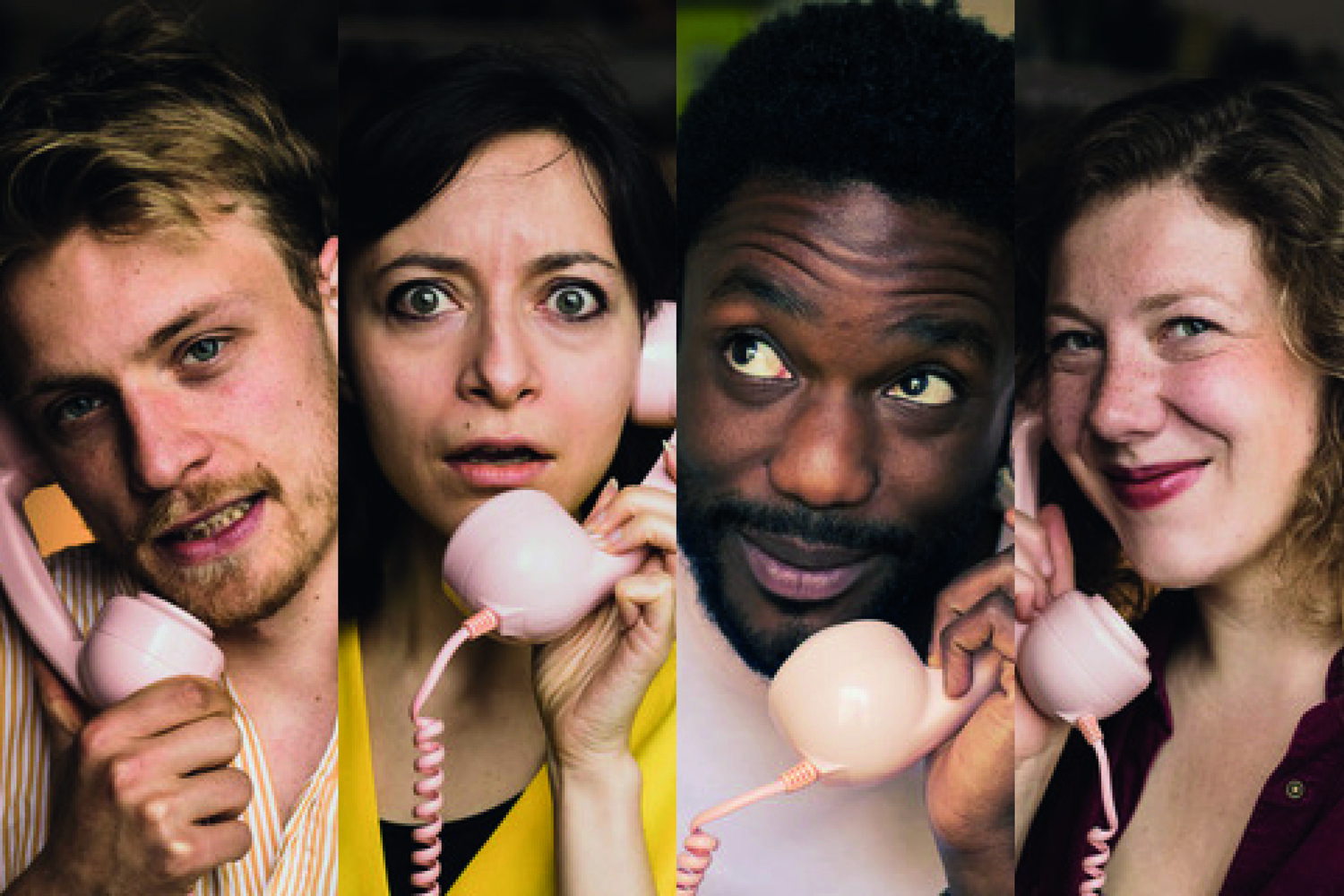There’s a little room just inside the entrance to the French Institute. A leather armchair. A side table. And a phone sitting on it. A proper old school rotary dial telephone. It’s an anachronistic industrial grey, amidst the green and gold leather and carved wood and sun filtering through the sash and case window. You’re instructed to enter the room and pick up the receiver. You hear the dialling tone. Then someone picks up.
French theatre company Phantasmata Cie and director Marie Colombe Lobrichon have created something elegantly charming. At the start of lockdown – while the theatres were shut – they came together to read poetry to each other as something to do. But as time dragged on, they began to wonder if there were other ways that they could create connections with people while the buildings were closed. Phantasmaphone was the result.
For fifteen minutes, you have a direct line to an actor in Paris. You’re asked if you prefer French or English. The actor shares a poem (and as my French extends only to ordering a beer, then translates that poem). And then you chat. An almost comically simple idea but after eighteen months of feeling possibly painfully short of connections, it’s also peculiarly beautiful.
This actor mused that she missed travelling, missed meeting different people and seeing different places and that the show made her feel that she was compensating for some of that. There was something extraordinary in knowing nothing of this lady’s life as she sat seven hundred miles away in Paris, but sharing the call, sharing the poem and sharing a moment of being people separated by a sea but equally bamboozled by the pandemic and its topsy turvy effect on our lives.
In a perfect world, the background bustle of the French Institute’s entrance hall and the distant traffic grumble from George IV Bridge would be muted. Headphones might make for a purer sonic experience. But this world isn’t perfect. And then you’d lose the romance of the phone, the faint crackle that reinforced the distance and the notion that this call and this moment were only ours.
